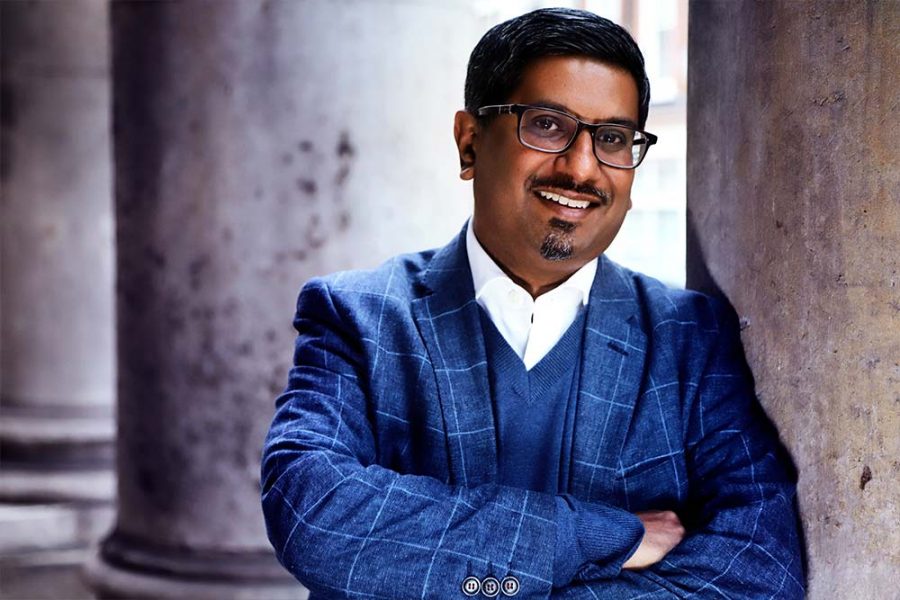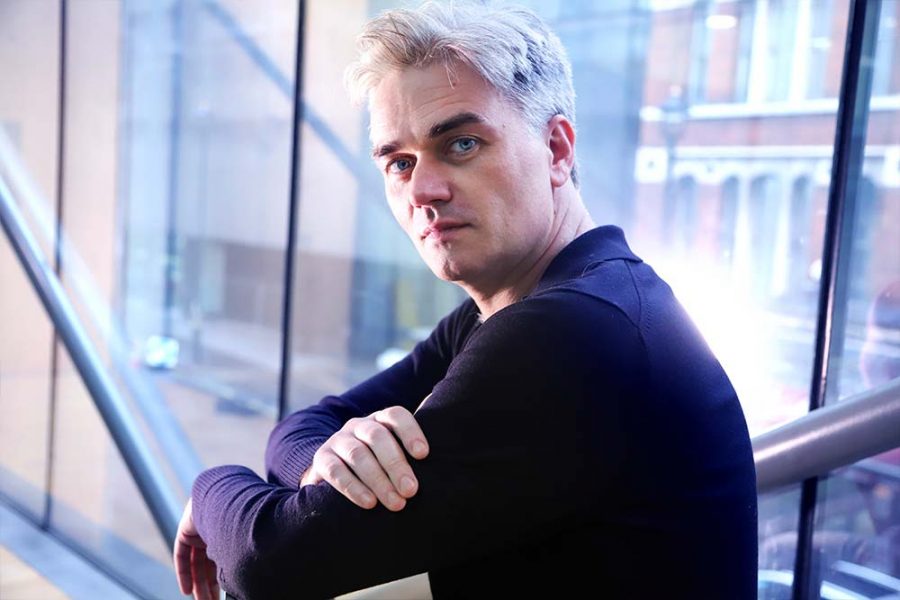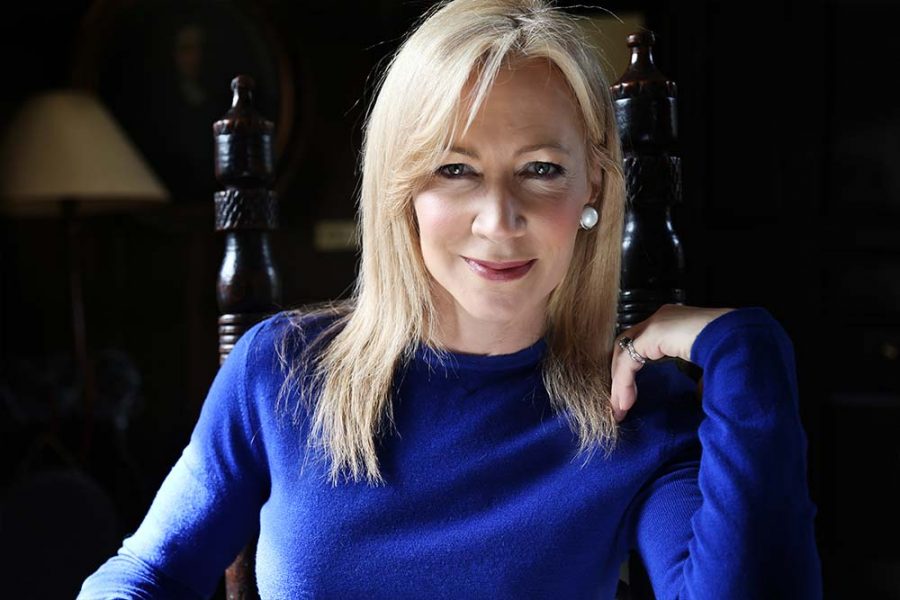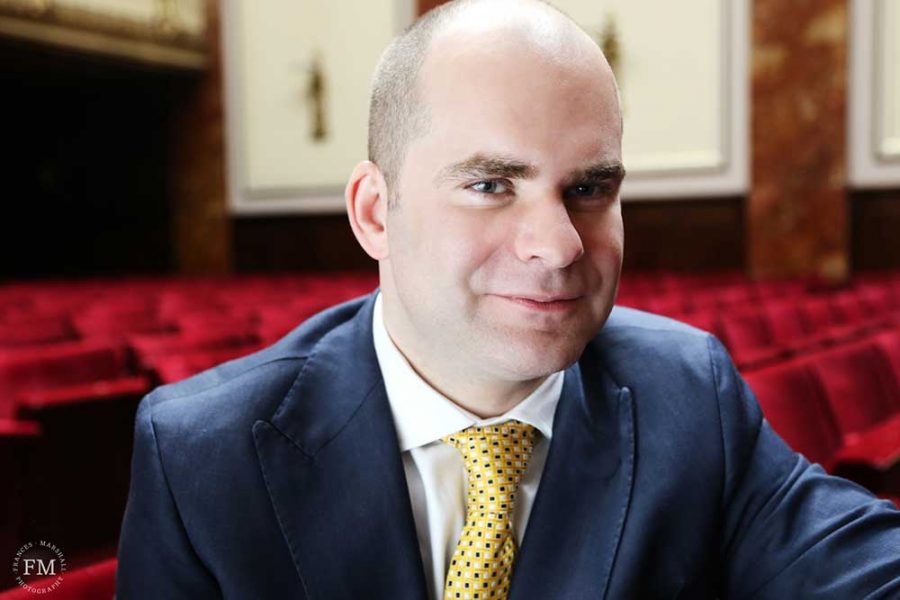Generating Opportunity with Natalie Murray Beale

April 2019
Interview and photos by
Frances Marshall
Share this article
Australian conductor Natalie Murray Beale is not only a thriving artist in her own right, but a formidable mentor who is holding the door open for the next generation of talent on the orchestral and operatic stage.
Now the Creative Director of Independent Opera, Final Note Magazine met Natalie in London to discuss the necessity for female conductor programmes, the benefits of partnerships and her upcoming concert with the Britten Sinfonia at the Barbican this week.
The most important factor in development is opportunity. Talent is important, but it can't thrive without opportunity and this, unfortunately, applies more to conducting."

There’s a big shift happening in conducting from what was a male-dominated profession. What insight can you give our readers from your position holding the baton yourself?
The one thing you can’t ignore is that people are still surprised when they see you perform because it’s rare, but it’s usually a look of positivity. I focus on building a relationship with the artists that I’m working with – gender doesn’t come into it.
The constant discussion on this topic will end when there’s no push back. You have to be very forthright and confident in what you’re presenting, along with the style in which you work. Throughout my career, I’ve always looked at who the decision makers are in this industry, and I see those leaders in two categories; those who want to protect the situation they know and those that want their work situation to change day by day. Both are parts of human nature, but I believe we need to keep evolving. However, you do need a certain amount of resilience – the baseline for me is that I want my performances to be listened to, judged and if I’m lucky, accepted.
Female conductor programmes have faced criticism in the past, what’s your response to this?
The most important factor in development is opportunity. Talent is important, but it can’t thrive without opportunity and this, unfortunately, applies more to conducting.
You can’t stand on your own in a room all day swinging a stick at the wall and you have no instrument to practise on. So if there’s no opportunity for you to work with an orchestra you cannot progress. From personal experience when I started out as a conductor on the music staff for a large UK opera company, there were many times I can now recall where an opportunity would come up through peers and I didn’t get picked. I’m not talking about getting the job, I’m talking about getting a chance to apply! It took longer than it should have for me to get that first opportunity and I realised that it wasn’t going to happen unless I convinced people to support me. The powers that be need to see you work – you can’t show anyone what you’re made of without being able to get on the podium. So if you’re not being allowed up, you can’t be nurtured, and you’re being shot down too early before you’re given a chance.
Another important aspect is that it takes time for the talent to be visible, there’s a whole range of skills that support good conducting and every conductor has those in different doses. It’s a difficult thing for people to critique and the talent needs the opportunity to progress so that the artist can evolve. If their peers are getting considerably more podium time, it’s difficult to compete fairly.
You work with many mentoring programmes in the UK and internationally, what is the most important thing to teach young artists?
I’ve always had great mentors and teachers, and I know how important this role is to an artist. As a pianist studying in the Sydney Conservatorium of Music, I had a huge interest in opera and working with singers and it was a teacher at the time who gave me the best advice to get my languages sorted. So I moved to Italy, learned Italian and was then offered a place at the Guildhall, London.
I see my role as a mentor, as a huge responsibility and I’m always truthful to artists so that they’re very aware of the challenges in this difficult industry. However, I encourage them to be brave because when it works out, it’s a phenomenal career to have. They need to know that they have to be able to jump and not see boundaries in geography or standards. Their mind needs to be free to think limitlessly.

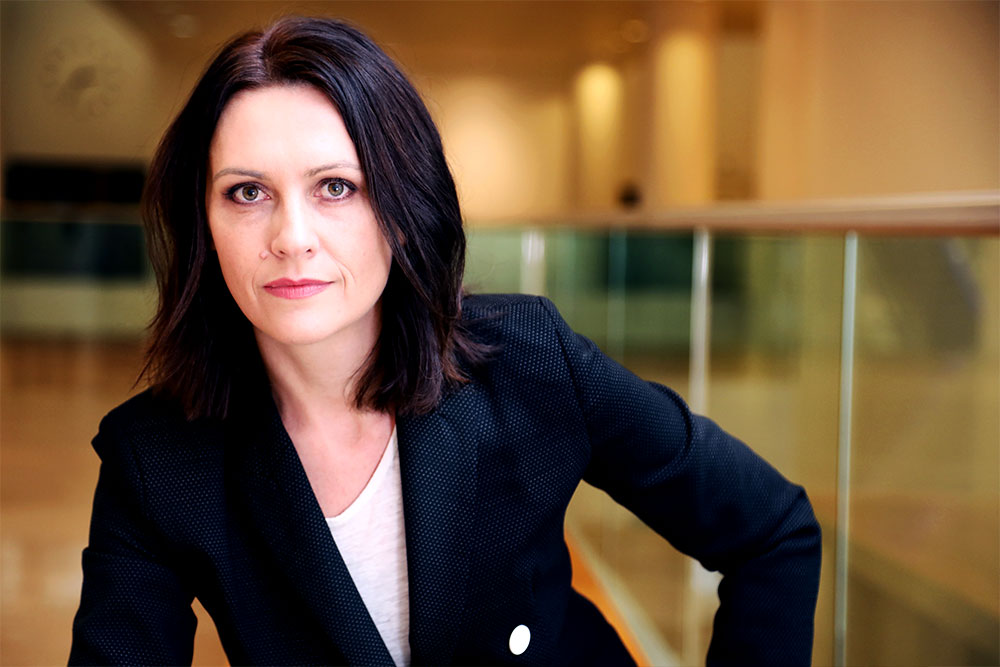


We focus on the transition between graduating and seeking professional work. We’ve pinpointed this phase as high-risk, where the artist is most likely to give up on their career."

You currently hold the position of Creative Director for Independent Opera, tell us about the work of the company.
The ethos of the company is fantastic and very much aligns with my values as an artist. My favourite sport is talent spotting and finding that essence makes me very happy. We focus on the transition between graduating and seeking professional work. We’ve pinpointed this phase as high-risk, where the artist is most likely to give up on their career. Reasons for this are generally that they’ve immediately lost their structure for the first time in their lives, they’re totally in control of their own timetable, which can be detrimental, and they’re most often cash poor.
Independent Opera is in the business of providing opportunities rather than focus solely on financial aid, which we also provide of course, but we really look at how we can help the artist build their career. We meet with each artist and discuss what they have in place already and what’s missing, such as their website, photography and so on. We then work on getting them to recognise the importance of playing the long game, as it’s at this time that artists are more vulnerable to making quick panicked decisions that may not be the best for them. We’re also on hand to provide professional advice on contracts or the technicalities of working abroad. Because we’re independent we have no agenda so they can speak to us freely and provide a safe place to chat about their concerns.
Independent Opera has collaborated with prominent institutions in London, what made the company take this step?
We wanted the opportunity to have a London platform. So this initiated our long-standing relationship with Sadler’s Wells. This allowed us to be able to easily invite leading figures to come and hear the artists that we were presenting to the world. We’ve also partnered with the Wigmore Hall for the 2019 Wigmore Hall/Independent Opera International Singing Competition.
This year we’ve taken it a bit further in that we want to look at what performing opportunities we can give an artist. Independent Opera is all about the ‘doing’ and we want to make sure that the artists leave the competition with something of value. The focus is not all on the prize, we want to create a week of mentorship and learning spaces.
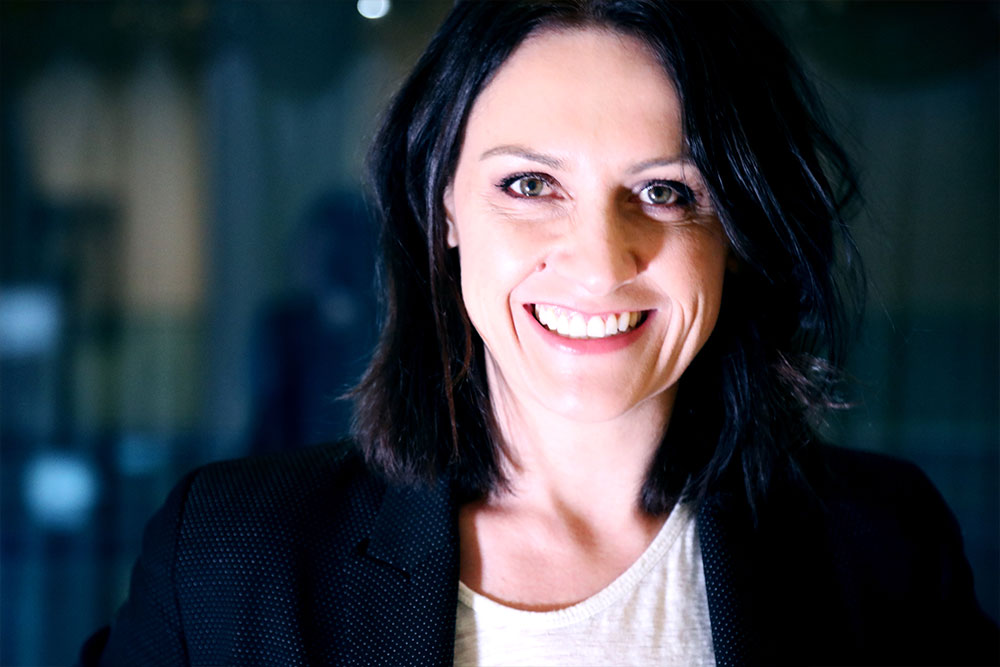

You are constantly working as a conductor with some of the world’s top companies, how do you balance your time with your administrative role?
Today the idea of a company is constantly changing, especially within the arts. We are a small company of three plus a board, who are achieving a lot. Luckily the board and the company see the fact that I’m working internationally as a huge bonus. I’m much more useful to our artists when my knowledge of the classical music workplace is very current. I’m liaising with international companies on a daily basis, so I generally know what’s happening on the ground and can bring that knowledge back into the company. I also absolutely love programming and bringing projects together, which is one of my main responsibilities in this role. A big benefit of working with Independent Opera is that we have a fantastic board, that’s full of intelligent and insightful people who allow us to get the work done.
How do you get yourself in the performance mindset?
I do very deep breathing for about 5 minutes before I go on stage. It puts me in a place that everything I can hear is so clear, my ears go into an intense sensory experience and it makes me feel totally awake. It’s so simple, it’s breathing in a deep and calming way.
As a Jury member, what are you looking for in a singer?
I want to hear a sound that if I heard it once I would recognise it. It has to have it’s own flavour and quality. I look very deeply into the applicant because I want to see who they are through whatever they’re trying to express. I want them to sing as themselves, but I’m also looking for a personal attachment to the role and what they’re singing about. I want to hear their expression of the line and phrasing, whatever the style.

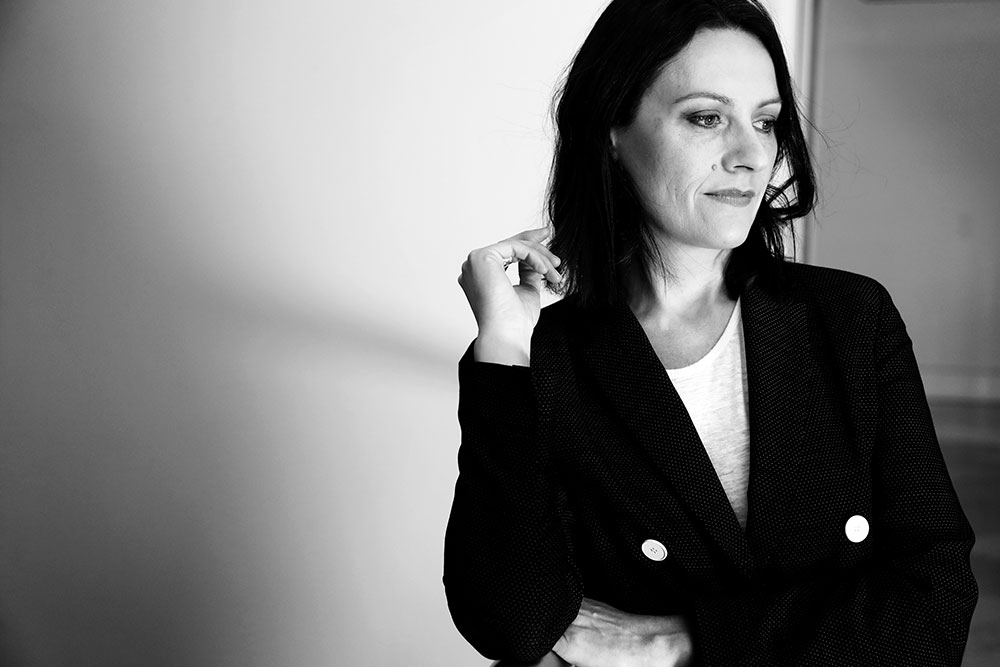

Most importantly it gives you a space to be a spokesperson. It’s an opportunity for you to give a perspective on the industry that you’ve participated in."

What gets you out of the classical music zone?
Because I’m working with sound all the time I like to tap into the visual arts when I can. My sister is a fashion designer so I’ve always been aware of that world and I love art galleries. I grew up on the coast in Australia so I love to swim, but I hate swimming pools – in a warm country I’ll make a beeline for the sea. Musically, I’m a huge fan of Amy Winehouse, she’s my favourite.
Do you have a morning ritual?
I get up early, and I write. It’s a free poetry thing, it’s a habit that came out of nowhere. I don’t judge it, it’s just for me.
You’ve received awards yourself and given many to other artists, what should an award mean to an artist?
Most importantly it gives you a space to be a spokesperson. It’s an opportunity for you to give a perspective on the industry that you’ve participated in. You need to be aware that the more you win, the more people and companies you represent and you owe it to those organisations to be the best artist and person you can.
Tell us about Independent Opera’s upcoming commission with the Britten Sinfonia and composer Joby Talbot?
We’ve commissioned smaller works annually, but A Sheen of Dew on Flowers is the company’s first major commission which celebrates the bi-centenary of Queen Victoria and Prince Albert’s birth. We’ve known Joby for a long time and we’re so excited to work with him again, he’s a brilliant artist. The piece is based on the partnership between this legendary couple who were fierce supporters of music and it was a big part of their marriage. They were also good friends with Mendelssohn and we’ve programmed his Symphony No.3 in the same concert which he dedicated to Queen Victoria. He also gave them a gift of the piece in a piano duo arrangement so they could play it together at home. This piece is all about partnership and considering the ethos of our company and how we thrive – it’s the perfect work for us bring to the Barbican audience on April 11th.
For more about Natalie Murray Beale:
www.murraybeale.com
For details on Independent Opera’s upcoming concert at the Barbican:
www.barbican.org.uk
All images displayed in this article are subject to copyright.
Share this article


